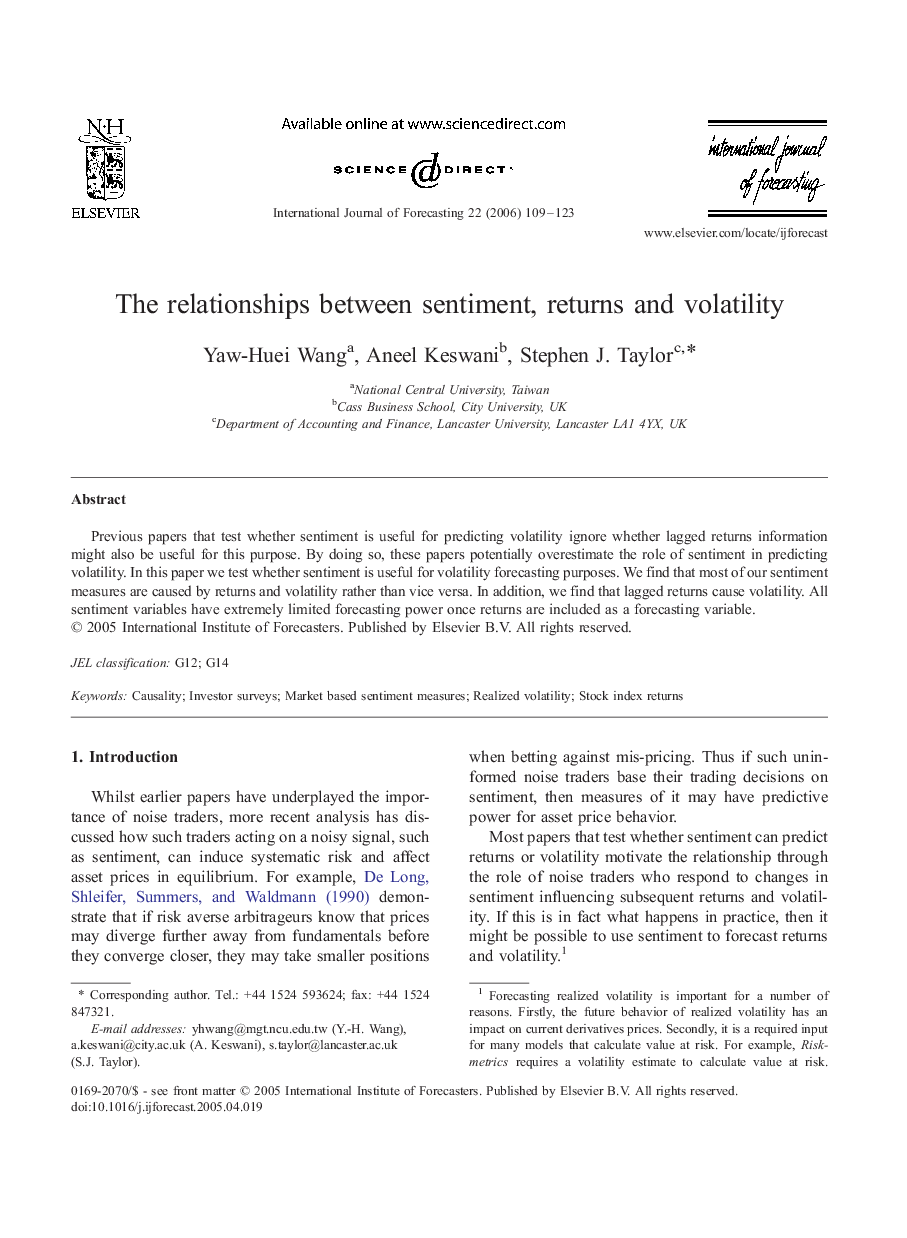| Article ID | Journal | Published Year | Pages | File Type |
|---|---|---|---|---|
| 998316 | International Journal of Forecasting | 2006 | 15 Pages |
Abstract
Previous papers that test whether sentiment is useful for predicting volatility ignore whether lagged returns information might also be useful for this purpose. By doing so, these papers potentially overestimate the role of sentiment in predicting volatility. In this paper we test whether sentiment is useful for volatility forecasting purposes. We find that most of our sentiment measures are caused by returns and volatility rather than vice versa. In addition, we find that lagged returns cause volatility. All sentiment variables have extremely limited forecasting power once returns are included as a forecasting variable.
Keywords
Related Topics
Social Sciences and Humanities
Business, Management and Accounting
Business and International Management
Authors
Yaw-Huei Wang, Aneel Keswani, Stephen J. Taylor,
